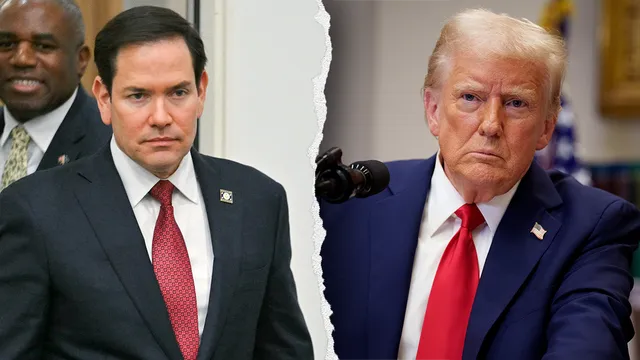
Trump orders major overhaul of National Security Council staff
2025-05-24 00:00- Over 100 officials at the National Security Council were placed on administrative leave due to a major restructuring.
- The changes were prompted by dissatisfaction with political appointees and aim to return career officials to their home agencies.
- This overhaul represents a shift in strategy under President Donald Trump, reinforcing a more centralized decision-making approach.
Express your sentiment!
Insights
In the United States, a significant restructuring at the National Security Council (NSC) was implemented as part of President Donald Trump's recent decisions. This major overhaul led to more than 100 officials being placed on administrative leave as the administration sought to streamline the staff and return career government employees to their home agencies. The move is seen as an effort to reduce the influence of political appointees and reshape the NSC's role in coordinating foreign policy. This shift in policy comes after Trump's dissatisfaction with political insiders during his previous term, emphasizing a return to an approach more aligned with his 'America First' agenda. The shakeup at the NSC is also related to the ousting of former national security adviser Mike Waltz, who was criticized for his management and decision-making approaches. Trump ultimately decided to appoint Secretary of State Marco Rubio as the interim national security adviser. Many believe this strategy will enhance the importance of the State Department and Pentagon within the foreign policy advisory framework while reinvigorating traditional Republican strategies. The specifics of the restructuring included an email sent by NSC chief of staff Brian McCormack, instructing affected staff to vacate their offices within thirty minutes, a move deemed unprofessional by some. This method of dismissal raised concerns about the impact on morale within the White House as it coincided with a long holiday weekend, creating an atmosphere of uncertainty and instability. It reflects ongoing turmoil within the Trump administration as the NSC continues to shift towards a more streamlined and hierarchical structure. In recent weeks, the reshaping of the NSC has led to questioning the appropriate size of its staff, reflecting how the structure and personnel of the council may further diminish its role in the policymaking process. Trump reportedly preferred a top-down decision-making model, relying on his instincts rather than traditional channels of advice, which has resulted in a liquidation of long-standing NSC staffing and a reduced emphasis on the role the council plays in national security and foreign policy coordination. The overall sense is that this reorganization is not merely administrative but indicative of a broader ideological shift within the administration’s approach to foreign policy and governance.
Contexts
The National Security Council (NSC) plays a crucial role in coordinating national security and foreign policy within the United States government. Established in 1947 by the National Security Act, the NSC is tasked with advising the President on matters related to national security and foreign policy. This council brings together the highest-ranking officials from various government agencies, including the Secretary of State, Secretary of Defense, and the National Security Advisor. The primary objective of the NSC is to ensure that the U.S. government responses to national security threats are well-coordinated and comprehensively developed through interagency collaboration. As such, it serves as a platform for the integration of information and strategies that pertain to national defense and international relations. The structure of the NSC has evolved over the years, adjusting to the changing landscape of global security. The core membership typically includes the President, Vice President, the Secretaries of State and Defense, and the National Security Advisor, who serves as the principal adviser. Additional members, such as the Director of National Intelligence and the Chairman of the Joint Chiefs of Staff, may attend meetings when pertinent issues arise. The NSC also supports the President in crisis management by providing immediate options and assessments during national emergencies, ensuring timely decision-making in critical situations. The importance of the NSC's advisory function cannot be overstated, as it directly influences the formulation and implementation of security policies that safeguard the nation. In addition to its role in policy development, the NSC engages with various stakeholders, including Congress, to ensure a balanced and informed approach to national security issues. Through its regular meetings and collaborative approach, the NSC seeks to anticipate potential interagency conflicts and address them proactively. The council is also responsible for producing the President's Daily Brief, a document summarizing the most crucial intelligence and security developments affecting the United States. This briefing keeps the President informed and equipped to make decisions that align with U.S. interests and priorities on the global stage. The role of the NSC extends beyond mere advisory capacities; it also involves the implementation of policies and strategies devised during its sessions. The NSC collaborates with various government bodies, including intelligence agencies and military commands, to ensure that policies are executed efficiently and effectively. The council's ability to adapt to emerging threats, such as cybersecurity challenges and transnational terrorism, highlights its ongoing relevance in shaping U.S. security strategies. In summary, the National Security Council is a pivotal component of the U.S. government, entrusted with the critical mission of safeguarding national interests through informed policymaking and robust interagency collaboration.